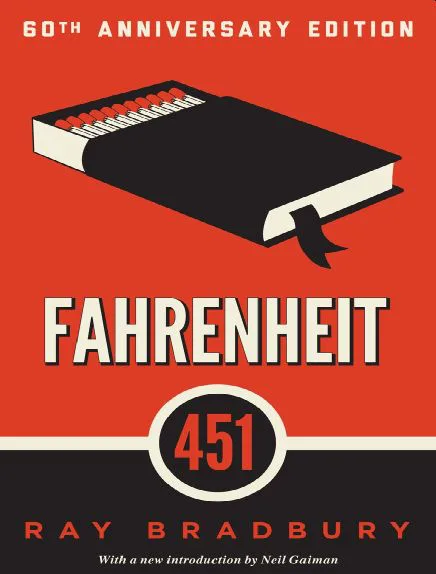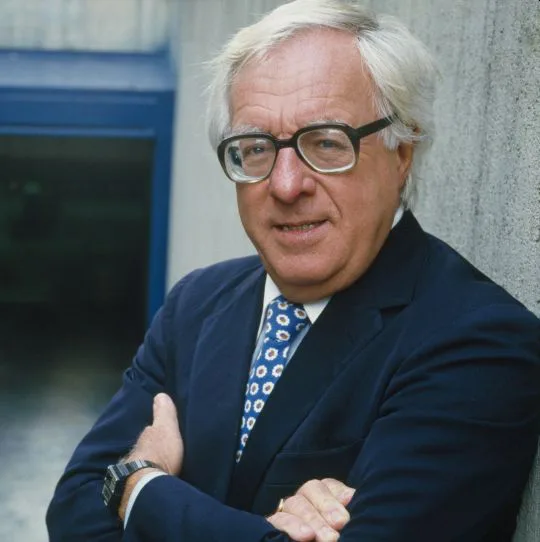
“Fahrenheit 451” is a dystopian fiction, written by American author Ray Bradbury in 1953. It stands as one of his most acclaimed works, delving into a dystopian world where people are programmed for efficiency and superficial contentment through constant exposure to television. In this society, intellectuals and free thinkers are absent, and replaced by passive TV viewers.
The Plot: Guy Montag’s Evolution
The narrative unfolds through the eyes of Gus Montag, a member of the fire brigade. Also, the central character, Guy Montag, is tasked with identifying and incinerating forbidden books along with the residences that conceal them. Montag, initially indifferent to the allure of literature, faithfully executes his duties until encountering Clarisse McClellan, a spirited and progressive young woman.
Through Clarisse’s unconventional perspectives and her family’s critiques of a society consumed by pleasure-seeking, Montag embarks on a journey of self-examination, challenging the path he has chosen in life. Following a conversation with her after duty, Montag starts to grasp the futility of his actions, realizing that much of what he has been accustomed to, and once found purpose in, holds little significance.
“Why burn books?” he thinks. “Why watch TV all day and interact with the digital ‘families’ on TV?
During a chance encounter with an elderly woman, Montag is struck by the profound mystery surrounding books.
“There must be something in books, something we can’t imagine, to make a woman stay in a burning house; there must be something there. You don’t stay for nothing.” Pg.65
He starts pondering the transformative power held within their pages, prompting him to question why individuals cling to them so fervently, even in the face of death. With each passing day, his curiosity intensifies, leading him to collect books from any available source.
Influenced by fellow book lovers, Montag realizes he must delve into the contents of these forbidden texts before resigning himself to a life of suppressing them once more.
Most individuals, in the novel, endure lives devoid of satisfaction and plagued by profound unhappiness. Suicide attempts are frequent, marriages are fleeting, and outdoor excursions are rare. Television serves as a means of escape, dulling emotions and fostering disconnection from reality. Emotional regulation is lacking, and people struggle to comprehend their own feelings. To make situation worse, society has completely removed the written literature.

A Seminal Exploration of Censorship and Intellectual Freedom
“Fahrenheit 451”, indeed, is a seminal work by Bradbury. There are certain historical references in the book like:
- the destruction of the ancient Library of Alexandria
- the Nazi regime’s censorship campaigns and
- the rise of mass media devaluing literature
These events served as the backdrop for his creation of a chilling dystopian society.
Bradbury’s own experiences, including his self-education through extensive library visits due to financial constraints, fueled his understanding of the profound impact of books. Along with the dangers inherent in their censorship.
His deep-seated concerns about censorship and the suppression of free speech permeate his work, reflecting his fears of a future devoid of intellectual freedom. Sadly, his vehement opposition to censorship led to the banning and censorship of his own work in various regions.
Takeaway
“Fahrenheit 451” remains a profoundly unsettling book, serving as a stark reminder of the inherent terror in limiting intellectual exploration and expression.
In our era, television and its so-called reality programs hold us in a hypnotic grip. Bradbury foresaw this effect over seventy years ago. He predicted that television would numb people’s awareness, dictate their beliefs, and blur the line between illusion and reality.
It’s uncanny how accurately he depicted societal trends in 1950’s. This book is a must-read for all lovers of literature, marking an essential addition to any bibliophile’s collection.




[…] and conformity, rather than fear, which is the case with We The Living. And Ray Bradbury’s Fahrenheit 451. This book is about censorship, intellectual repression, and the erasure of individual thought. […]